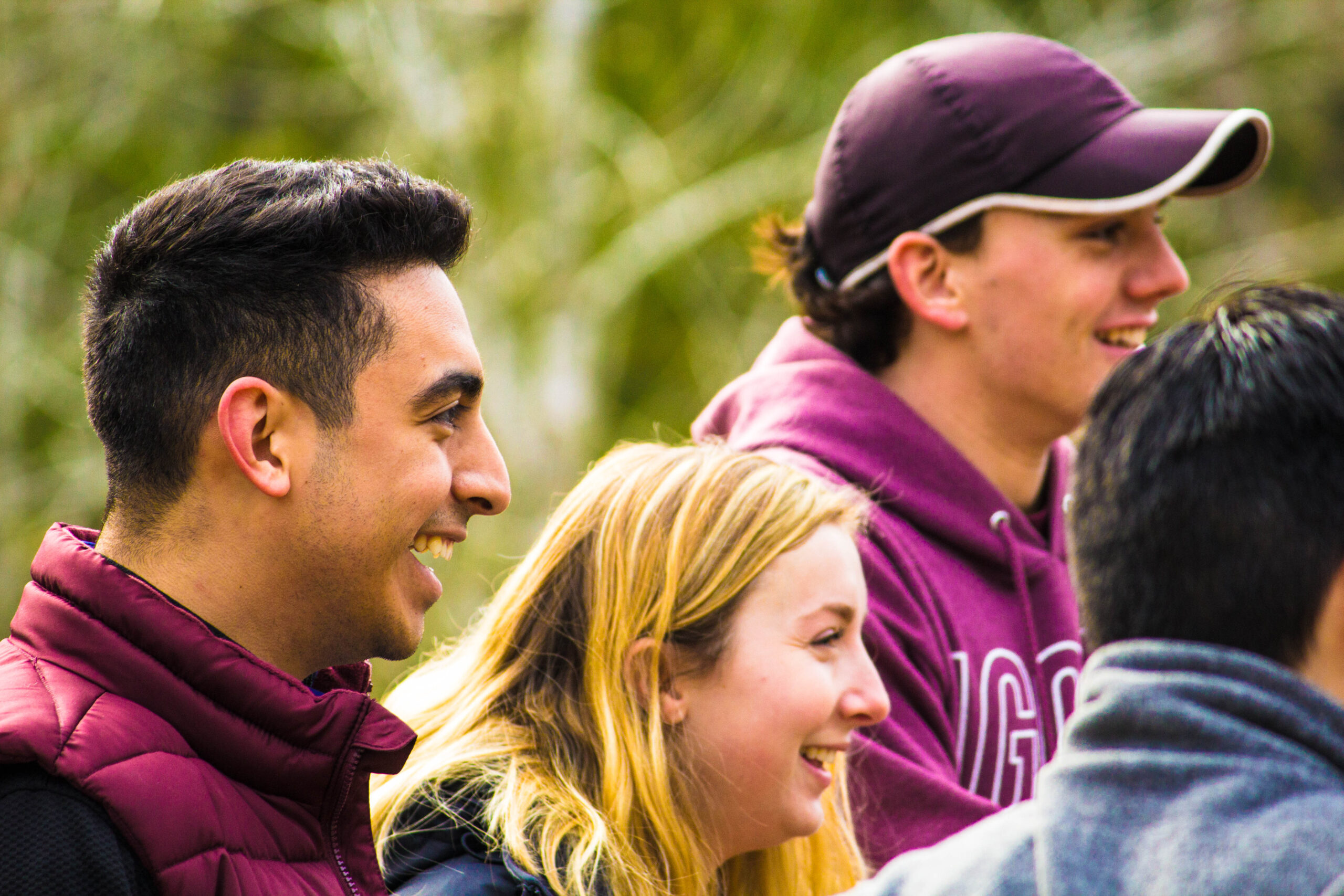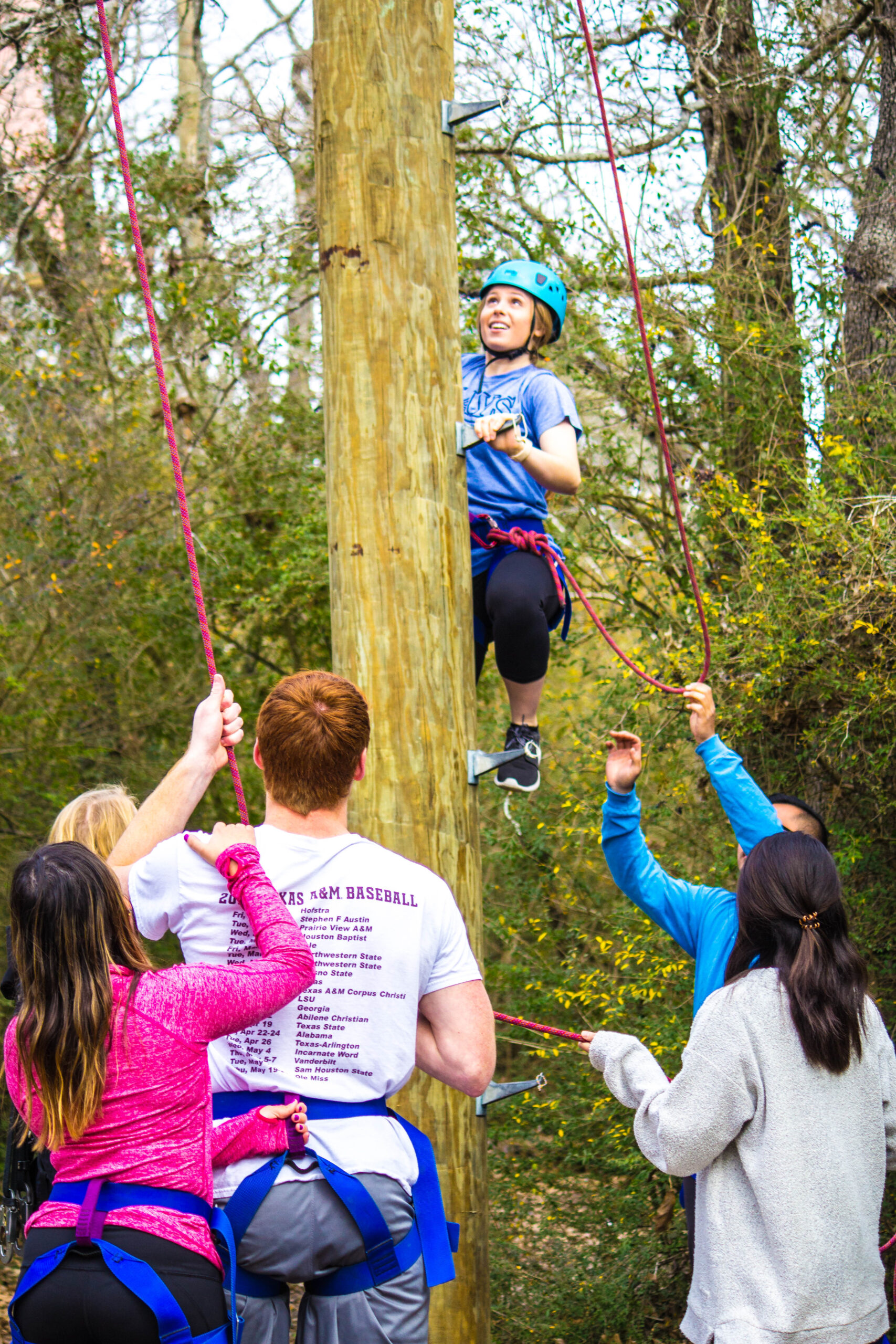Students learn about themselves and others through SUMMIT conference
March 3, 2018
|
Mays Business School

When 54 business undergraduate students got on a bus, filled mostly with strangers, and traveled to Stoney Creek Ranch for a three-day retreat in late February, building lasting friendships wasn’t what most of them expected. But through speaker sessions, small group discussions, and personal reflection time, the SUMMIT conference communicated one thing consistently: people matter to your story, and you matter to other people’s stories.
In the words of one delegate, “I think this really came out of the social impact mindset. You really think more about other people’s stories. Step into someone else’s shoes, you know?”
Several delegates said the conference pushed them to think differently about creating opportunities, using their unique strengths and valuing the strengths of others. “I can more comfortably find ways to learn from others, and maybe even let them learn from me, too.”
The purpose of SUMMIT (Students Understanding, Maximizing, and Mentoring Individual Talent) is to empower students as developing leaders through purposeful reflection and honest self-awareness. Whether students participate as freshmen or seniors, SUMMIT challenges students to think about how they can intentionally shape their own story and influence the people and organizations to which they are connected.
“Smile more,” said Alec Calvillo ’19. “The people around you matter, and sometimes all it takes to let them know that is to smile.”
Lauren Secrest wrapped it up perfectly. “The SUMMIT experience changes who you are and what you think based on what you are going through right now. I’m not sure you can say this is what SUMMIT is about or that is what SUMMIT is about. Just go and find out!”

SUMMIT accomplishes this by:
- Equipping student facilitators to lead small group discussions with conference delegates on topics such as values, resilience, dreams and goals, and personality assessments
- Challenging student participants (delegates, facilitators, and executive team) to think intentionally about choices they make and the habits they build
- Offering a model for meaningful dialogue about difficult topics using productive vulnerability
- By Jeana Guillory


